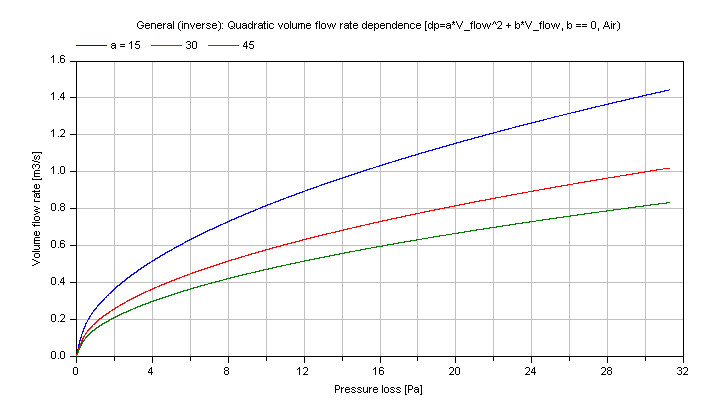Calculation of a generic pressure loss with linear or quadratic dependence on volume flow rate.
The geometry parameters of energy devices necessary for the pressure loss calculations are often not exactly known. Therefore the modelling of the detailed pressure loss calculation has to be simplified. This function uses as quadratic dependence of the pressure loss on the volume flow rate.
The mass flow rate m_flow for the compressible case [Mass flow rate = f(dp)] is determined to [see Wischhusen] :
m_flow = rho*[-b/(2a) + {[b/(2a)]^2 + dp/a}^0.5]
with
| a | as quadratic coefficient [Pa*s^2/m^6], |
| b | as linear coefficient [Pa*s/m3], |
| dp | as pressure loss [Pa], |
| m_flow | as mass flow rate [kg/s], |
| rho | as density of fluid [kg/m3]. |
Note that the coefficients a,b have to be positive values so that there will be a positive (linear or quadratic) pressure loss at positive volume flow rate and vice versa.
Compressible case [Mass flow rate = f(dp)]:
The generic pressure loss dp for different coefficients a as parameter is shown in dependence of the volume flow rate V_flow in the figure below.

Note that the verification for dp_volumeFlowRate is also valid for this inverse calculation due to using the same functions.